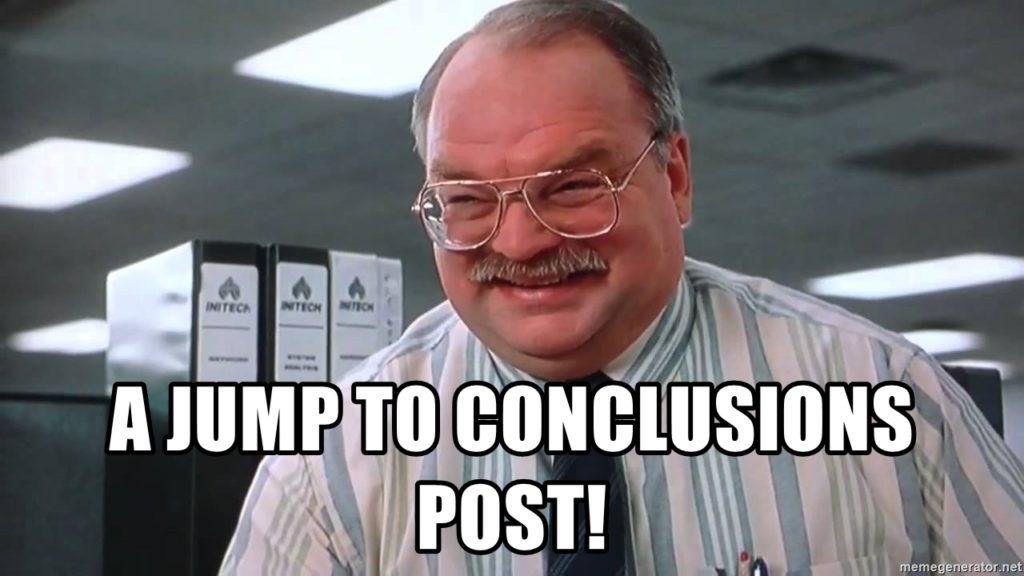“Everything turns on your assumptions about it, and that’s on you. You can pluck out the hasty judgment at will, and like steering a ship around the point, you will find calm seas, fair weather and a safe port.”
MARCUS AURELIUS, MEDITATIONS, 12.22
In the movie “Office Space”, one of the more pathetic characters was always talking about inventing a Jump-to-Conclusions Mat as a consumer product. All of his colleagues thought it was a terrible idea, and told him so directly.
They probably thought it was a bad idea because jumping to conclusions is a bad idea in general. The conclusions that you jump to will set the tone for the rest of your interaction with that person or situation. Your perspective will be colored by your (generally negative) assumptions about motive, intentions, results, etc.

Conversely, the kind and good person assumes the best about people, and about their intentions. They don’t go deep down into the rabbit hole — they keep things relatively superficial and trust their first impression based on what they can actually observe, and thus expect the best. They give people the benefit of the doubt.
Assuming the worst is easy, and in some environments it’s almost automatic. That’s sad. It happens because our heart is full of fear, and pain. We’re reacting to protect ourselves. Jumping to negative conclusions also makes the situation — and our reaction — actually worse than it has to be.
Assuming the best is harder, because it requires love and an open heart. And bravery. We have to set aside our desire to protect ourselves from harm, and trust instead. But the result is more enjoyable and happier: “calm seas, fair weather and a safe port”, as Marcus Aurelius reminds us in today’s quote from The Daily Stoic.





